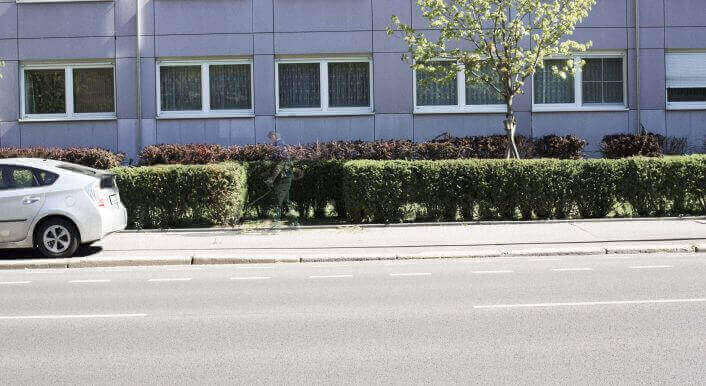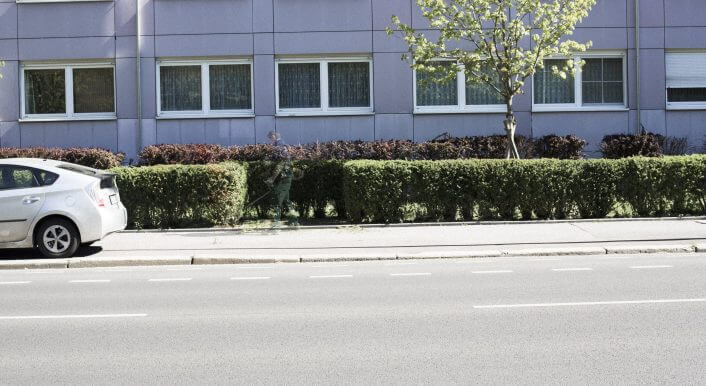The Sovereignty of the State
Why can people not freely enter our country? The Germany residency law does not justify this. The migration researcher Norbert Cyrus says that closing borders goes against individual liberty. But he also says: states are allowed to limit migration if they have concrete reasons.

That would also help protect individuals’ rights. Julian Jestadt spoke with Norbert Cyrus about the balance between the residency law and the right to freedom of movement.
Mr. Cyrus, people are not allowed to move around freely in this world. There are passports, state borders that are only allowed to be crossed with express permission, and border controls. In Germany we have a residency law which regulates foreigners’ entry, exit and residency. Tell us, why do we need this?
Norbert Cyrus: Across the world we can identify significant differences: in regard to income levels, public and social security, future perspectives and individual liberty. This creates incentives for migration. The residency law is designed to regulate and limit this migration. This is supposed to protect our social fabric.

Norbert Cyrus
And is it necessary for us to protect ourselves?
We need verifiable regulations in accordance with rule of law to organize how people enter the country as well as residency and social cohesion. But the current residency law is in urgent need of reformation. I believe the issue should be to allow and ensure migration. We must find a balance between every individual’s right to free movement and the right of the state to regulate entry into the country and residency. Both rights – on their own – contradict one another. At the moment, the right of the state is given priority. There is no balance.
How could we resolve this contradiction and find a balance?
In a debate that is not marked by fear. First the individual right to free movement must be recognized as an aspect of the fundamental human right to liberty, which includes the right to enter a country. This is part of a liberal conception of statehood that protects democracy and individual liberties. At the same time, such a conception of state recognizes the state’s right to decide on people’s entry, exit, residency and exclusion. Naturally, this can only apply for states that are led democratically and are legitimized by their citizens. As the two rights contradict one another, a liberal society must determine which right should be given priority – and to what extend the other right can be restricted. I argue that states which claim to respect human rights and promote individual liberties must regard the right of the individual as the higher good. In that case, it should only be restricted if there are very good and clear reasons.
Is that a suggestion to abolish borders?
No. In the current circumstances of global inequality, a state, let’s say Germany, can restrict the higher good of freedom of movement to a limited extent. This should not be seen as self-evident, but as a means of last resort that must be justified in concrete terms.
What reasons are there for having the Germany residency law?
At the moment, the German residency law restricts freedom of movement without referring to any good reasons. The general argument is usually made that states possess an internationally recognized sovereignty which includes the right to control migration – according to national interest, whatever that is, and without any obligation to provide justification. At the same time, the right to freedom of movement is not recognized. Accordingly, the issue of concrete justification for a restriction is not raised.
Many say that Germany cannot take in everyone who wants to come. Is that a justification?
Yes, that can be a justification.
Is it sufficient?
No. Because this justification is not made concrete and is not verifiable. It is sweeping and superficial. One would have to show that taking in people seeking sanctuary would undermine the foundations of our democracy and our social fabric. Only then can the restriction of freedom of movement be seen as justified. I can show you a different example: the right to freedom of opinion and speech can be restricted if insults or hate speeches collide with the basic and human rights of other people. In a liberal state governed by the rule of law, this underlies court review. That means a restriction is only legitimate if it is well justified and verifiable. In states governed by the rule of law, freedom of speech and opinion are not called into question as basic and human rights – but it seems to be different with the freedom of movement.
You mentioned earlier that the residency law claims to protect the social fabric of the state. If this fabric were endangered, would that be a good justification?
Yes. But then one must show that this social fabric is concretely threatened by immigration, and to what extent, and how it might collide with other rights. But one must ask: is this part of a change that we must bear as a society today? Or is it something that threatens our democracy, our society? This must be demonstrated and must be verifiable to justify a restriction of the freedom of movement. But it does not happen.
What is your proposal?
The obstacles that restrict individuals’ freedom of movement are demonstrated in concrete terms when supposed justifications for restricting the freedom of movement are presented. This would be the basis for deliberations and debates to determine whether these justifications are convincing and applicable – or not. If they are convincing, we can think about how individual freedom of movement can be established to the greatest possible extent under these conditions, which also means: how immigration can be enabled. That way a balance between the two rights can gradually be developed in political debates.
Why is this not happening?
We live in a complex society in which the current structural, institutional and social conditions have been negotiated through an arduous process. Global inequalities and asynchronicities have created tensions between different principles. Established policy primarily seeks to prevent change to the particular social system and conditions. There is a danger that those who profit from the structures at the moment could have something taken away from them. There is a great incentive to rather not change anything and preserve what has been accomplished for as long as possible. There is a fear of losing wealth or privileges. This fear must be taken seriously – also because it can be used to promote resentment against immigration. But as before: a general reference to unclear fears is not a sufficient justification for restricting such a high good as the right to individual freedom of movement.
Translation: Noah Walker-Crawford
Editor: Florian Bickmeyer
Design: Thorsten Franke, Simon Jockers, Ivo Mayr



